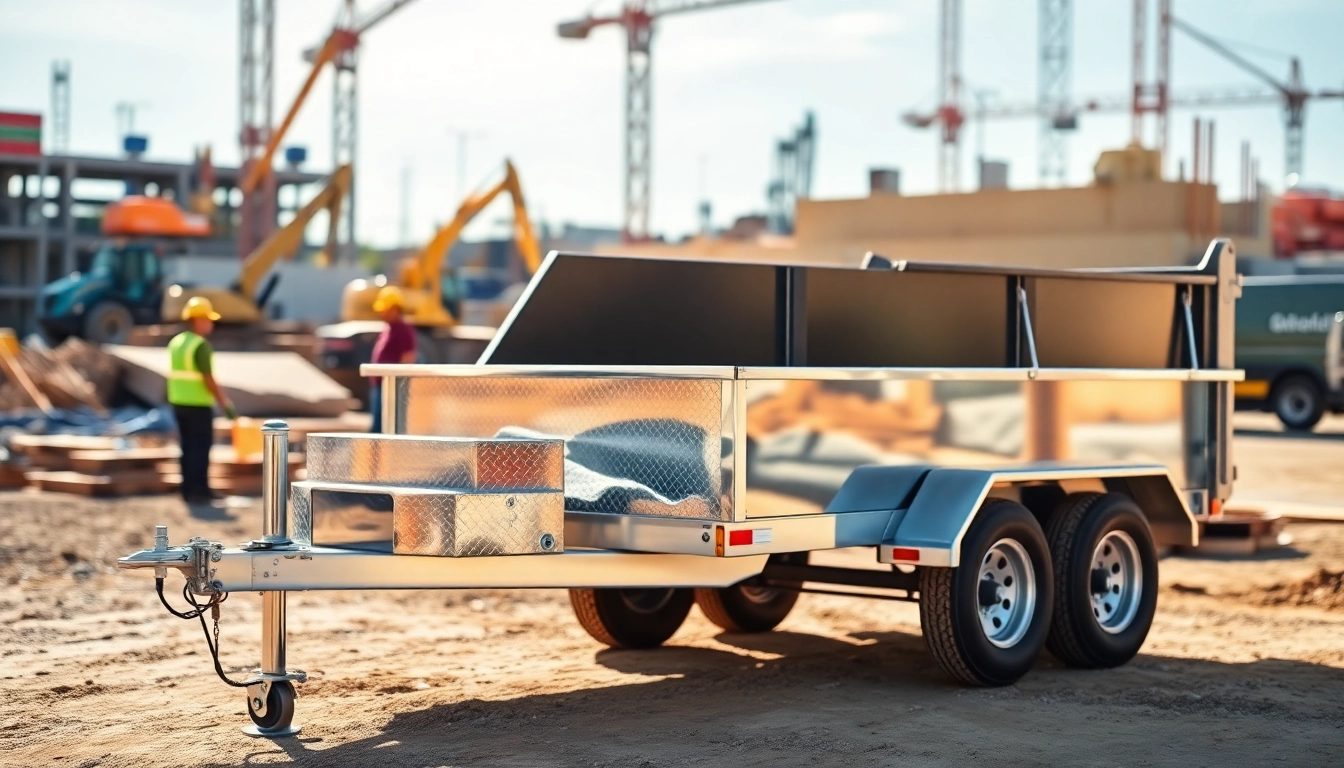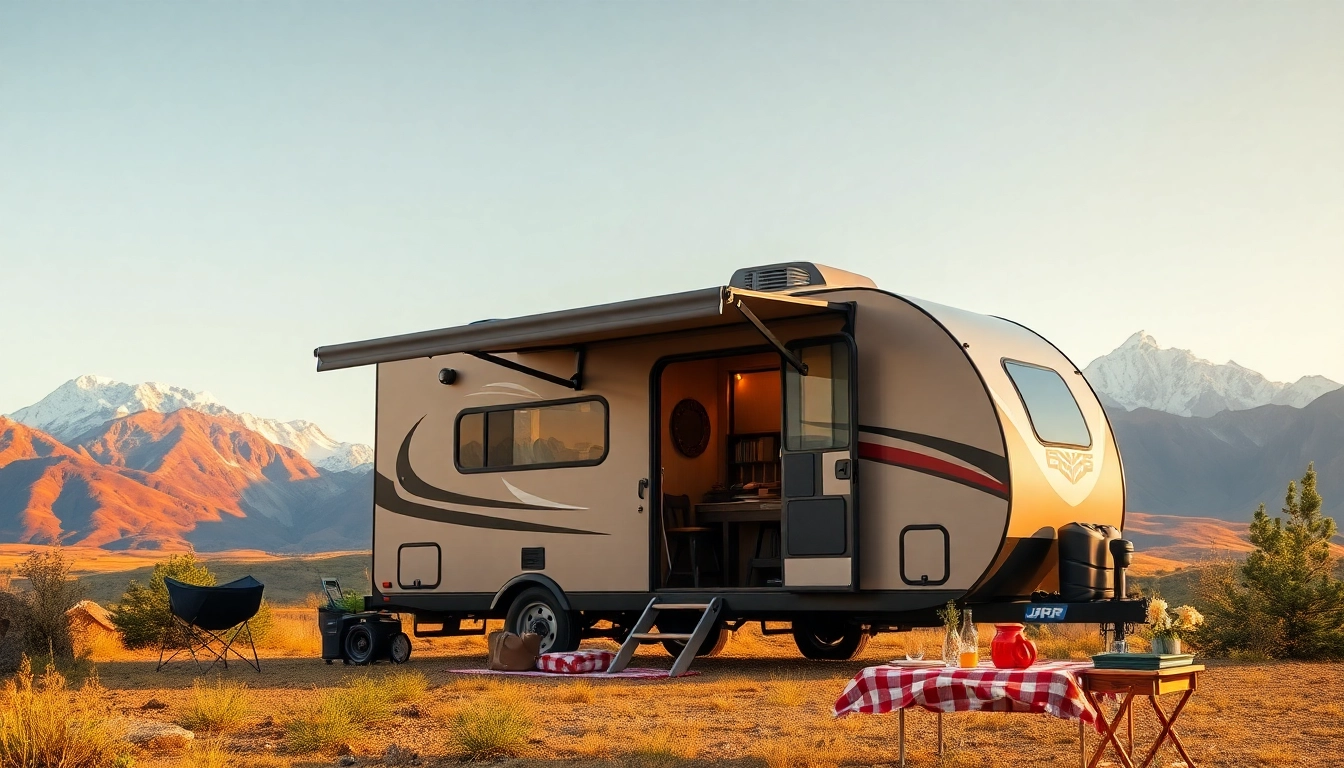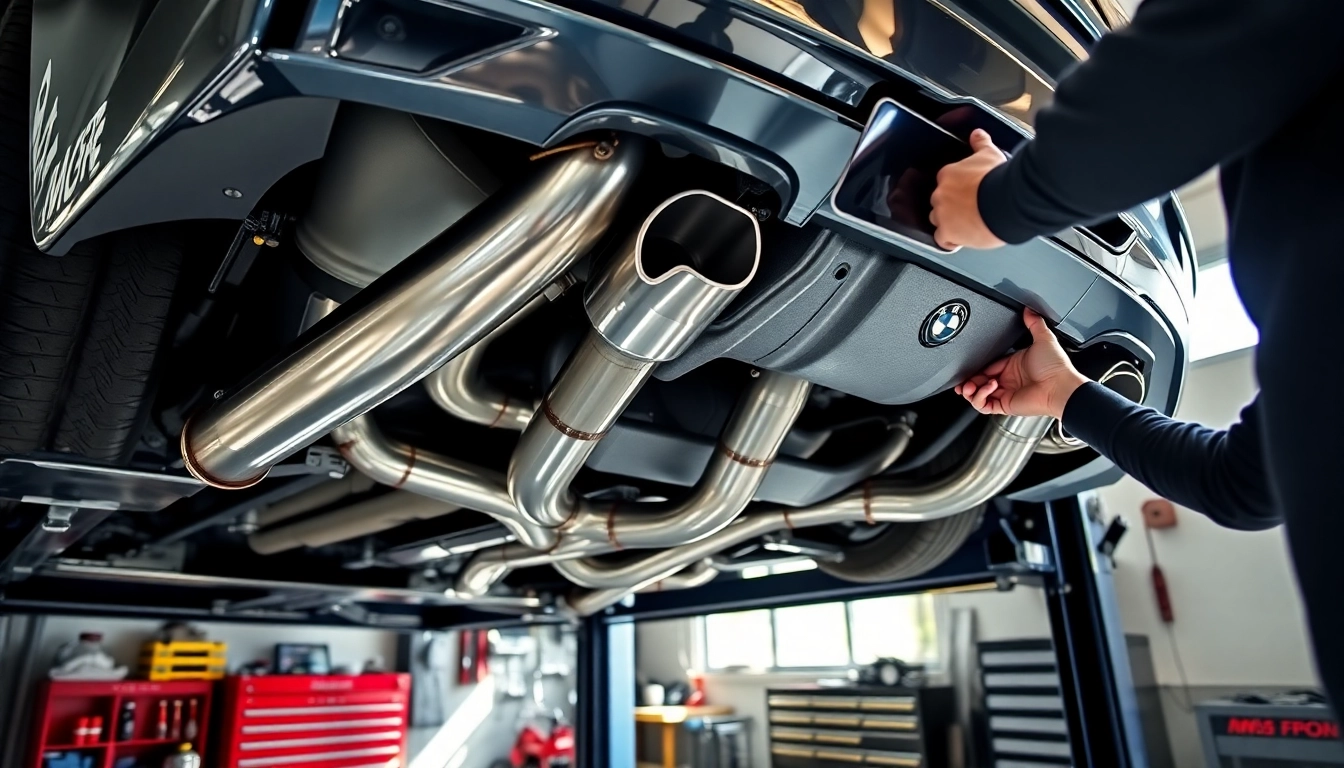Understanding Dump Trailers
What is a Dump Trailer?
A dump trailer is a specialized trailer designed to transport and unload materials efficiently. Unlike standard trailers, dump trailers feature a hydraulic system that allows the trailer bed to tilt and dump its contents. This design is particularly useful in construction, landscaping, and waste removal, where quick unloading is essential. Made with a heavy-duty frame, a dump trailer can handle various loads, from soil and rocks to debris and heavy equipment. The hydraulic lift system typically used in these trailers enhances their efficiency, making them indispensable for both commercial and personal use.
Types of Dump Trailers Available
When considering a dump trailer, it’s essential to understand that they come in several types, each tailored for different needs:
- Standard Dump Trailers: The most common type, available in various sizes and capacities, generally featuring a single or dual axle.
- Gooseneck Dump Trailers: Designed for larger loads, they attach to a specialized hitch in the truck bed, providing improved stability and control over the vehicle.
- Enclosed Dump Trailers: These trailers have sidewalls that protect the load from the elements and keep materials contained, ideal for transporting loose materials.
- Heavy-Duty Dump Trailers: Engineered for the toughest jobs, these trailers can handle extreme loads and are often constructed with reinforced steel frames.
Common Uses for Dump Trailers
Dump trailers are versatile and serve a multitude of purposes, including but not limited to:
- Construction Waste Disposal: For site clean-up, dump trailers easily transport construction debris.
- Lawn and Landscaping: Used for hauling soil, mulch, rocks, and other landscaping materials.
- Agricultural Use: Farmers utilize dump trailers to transport feed, fertilizers, and crops.
- Moving Equipment: Ideal for loading and unloading heavy machinery or tools across various job sites.
Factors to Consider When Buying a Dump Trailer
Size and Capacity Requirements
One of the first considerations when purchasing a dump trailer is its size and carrying capacity. Trailers typically range from smaller models with a capacity of around 3,000 lbs to larger models capable of supporting over 20,000 lbs. Assess your needs based on the type of items you’ll be transporting and the frequency of use. Overestimating your requirements could lead to unnecessary costs, while underestimating could result in operational inefficiencies and safety risks.
Material and Build Quality
The material used in constructing a dump trailer directly impacts its durability and performance. Common materials include:
- Steel: Offers high durability and strength, ideal for heavy loads.
- Aluminum: Lightweight, resistant to rust, and suitable for lighter applications but may not be as robust as steel.
Additionally, consider the quality of welds and joints, as these are critical for ensuring the longevity and safety of the trailer.
Hydraulic Systems and Operating Mechanisms
The hydraulic system is the heart of dump trailers, allowing for the tipping mechanism. When examining the hydraulic system, ensure that it is:
- Reliable: Look for reputable brands known for their hydraulic components.
- Easy to operate: Some systems come with manual controls, while others offer remote operation.
- Maintenance-friendly: An easily accessible hydraulic system can simplify maintenance and repairs.
Where to Find Dump Trailers for Sale Near Me
Local Dealers and Showrooms
Local dealerships often carry a range of dump trailers, offering the benefit of viewing the product in person. When visiting a dealership, ask about ongoing promotions, available inventory, and potential customization options to suit your specific needs.
Online Marketplaces and Classifieds
The Internet has greatly expanded the options for purchasing dump trailers. Sites like marketplaces or classified ads allow you to browse a vast selection of trailers from various sellers. When exploring online listings, make sure to filter by your location to find dump trailer for sale near me.
What to Look for in Listings
While browsing online listings, keep an eye out for key information:
- Condition: Check if the trailer is new or used, and if used, look for detailed photographs and descriptions of its condition.
- Price: Compare similar models to ensure you’re getting a fair deal.
- Location: Consider pickup logistics if the seller is located far away.
- Seller Reputation: Read reviews and ratings if available to assess the seller’s credibility.
Financing Options for Your Dump Trailer Purchase
Understanding Your Budget
Before jumping into purchasing a dump trailer, establish a clear budget to understand what you can afford. Factor in not just the price of the trailer but also additional costs such as registration fees, insurance, and maintenance. Having a budget will also guide your options in terms of new versus used trailers.
Loan Options for Dump Trailer Purchases
Many buyers choose financing options to make their purchase more manageable. Consider the following loan options:
- Bank Loans: Traditional banks often offer competitive interest rates, especially for established customers.
- Credit Unions: They may provide favorable rates and terms for their members.
- Specialized Trailer Financing Companies: These companies often have tailored plans for purchasing trailers that may suit your specific needs better.
Always review loan terms, interest rates, and payment plans carefully before making a decision.
Leasing vs. Buying: Which is Right for You?
Deciding whether to lease or buy can significantly impact your finances. Here’s a simple breakdown:
- Leasing: Generally results in lower monthly payments and can be an excellent option for those needing a trailer for a short term or specific project.
- Buying: Provides full ownership and the potential for resale, which can be advantageous for those who regularly utilize a trailer.
Consider your long-term needs when making this decision, including how frequently you expect to use the trailer.
Maintenance Tips for Your Dump Trailer
Regular Inspection and Upkeep
To ensure the longevity and efficiency of your dump trailer, establish a regular inspection schedule. Check:
- Tires for wear and proper inflation.
- Brakes and lights for functionality.
- The hydraulic system for leaks or damage.
- Frame and body for any signs of corrosion or wear.
Common Repairs and Troubleshooting
Even with careful maintenance, issues may arise with your dump trailer. Common problems include:
- Hydraulic Pump Failure: Ensure fluid levels are adequate and inspect for leaks; a faulty pump might need replacement.
- Electrical Issues: Test wiring and connections to troubleshoot any failures in lights or brakes.
- Wear on Tires: Replace tires showing significant wear or damage to maintain safety and handling.
Best Practices for Longevity
Implementing best practices will help prolong the life of your dump trailer:
- Properly store the trailer away from harsh elements when not in use.
- Keep the trailer clean from debris and materials after each use.
- Follow the manufacturer’s recommendations for repairs and servicing intervals.
By adhering to these guidelines and considerations, you will not only ensure optimal performance but also extend the lifespan of your dump trailer. With the right information and approach, finding the perfect dump trailer for sale near me becomes an achievable goal, setting you up for successful projects for years to come.



